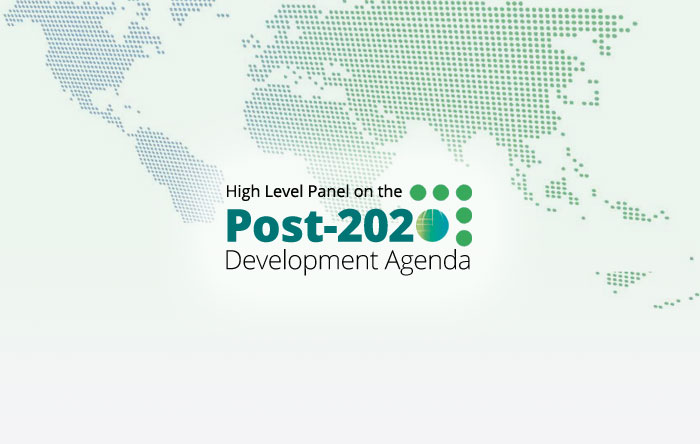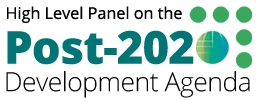10. Ensure Good Governance And Effective Institutions

a) Provide free and universal legal identity, such as birth registrations
b) Ensure that people enjoy freedom of speech, association, peaceful protest and access to independent media and information
c) Increase public participation in political processes and civic engagement at all levels
d) Guarantee the public’s right to information and access to government data
e) Reduce bribery and corruption and ensure officials can be held accountable
The Universal Declaration of Human Rights, signed over 60 years ago, set out the fundamental freedoms and human rights that form the foundations of human development. It reiterated a simple and powerful truth – that every person is born free and equal in dignity and rights. This truth is at the very heart of a people-centred agenda, and reminds us how high we can reach, if we reaffirm the value of every person on this planet. It is through people that we can transform our societies and our economies and form a global partnership.
People the world over are calling for better governance. From their local authorities to parliamentarians to national governments to the multilateral system, people want ethical leadership. They want their universal human rights guaranteed and to be recognised in the eyes of the law. They want their voices to be heard and they want institutions that are transparent, responsive, capable and accountable. People everywhere want more of a say in how they are governed. Every person can actively participate in realising the vision for 2030 to in bring about transformational change. Civil society should play a central, meaningful role but this requires space for people to participate in policy and decision-making. This means ensuring people’s right to freedom of speech, association, peaceful protest and access to independent media and information.
Strengthening the capacity of parliaments and all elected representatives, and promoting a vibrant, diverse and independent media can further support governments to translate commitments into action.
The word “institutions” covers rules, laws and government entities, but also the informal rules of social interactions. Institutions enable people to work together, effectively and peacefully. Fair institutions ensure that all people have equal rights and a fair chance at improving their lives, that they have access to justice when they are wronged.
Government is responsible for maintaining many of society’s central institutions. One of the most basic institutional responsibilities is providing legal identity. Every year, about 50 million births are not registered anywhere, so these children do not have a legal identity. That condemns them to anonymity, and often to being marginalised, because simple activities – from opening a bank account to attending a good school – often require a legal identity.
Openness and accountability help institutions work properly – and ensures that those who hold power cannot use their position to favour themselves or their friends. Good governance and the fight against corruption are universal issues. Everywhere, institutions could be more fair and accountable. The key is transparency. Transparency helps ensure that resources are not wasted, but are well managed and put to the best use.
Many central institutions are public. But not every one. The need for transparency extends to all institutions, government entities as well as businesses and civil-society organisations. To fulfill the aims of the post-2015 agenda requires transparency from all of them. When institutions openly share how much they spend, and what results they are achieving, we can measure progress towards each goal. Openness will make success much more likely.
Publishing accounts – including sustainability accounts – brings ownership and accountability to the entire post-2015 agenda. Sustainability encourages societies to measure more than money — and to account for the value of all of the other natural and societal resources that bring prolonged prosperity and well-being.
Accountability works best in an environment of participatory governance. The Millennium Declaration declared freedom one of six fundamental values, and stated that it is best ensured through participatory governance.
One target that would be useful is to decrease the extent of bribery and corruption in society. There are concerns with how reliably this is measured—but many indicators are imprecise and this should just lead to re-doubled efforts to improve the understanding of how pervasive this may be. When evidence is found of bribery or corruption, involving public officials or private individuals, they should be held to account. Zero tolerance.
